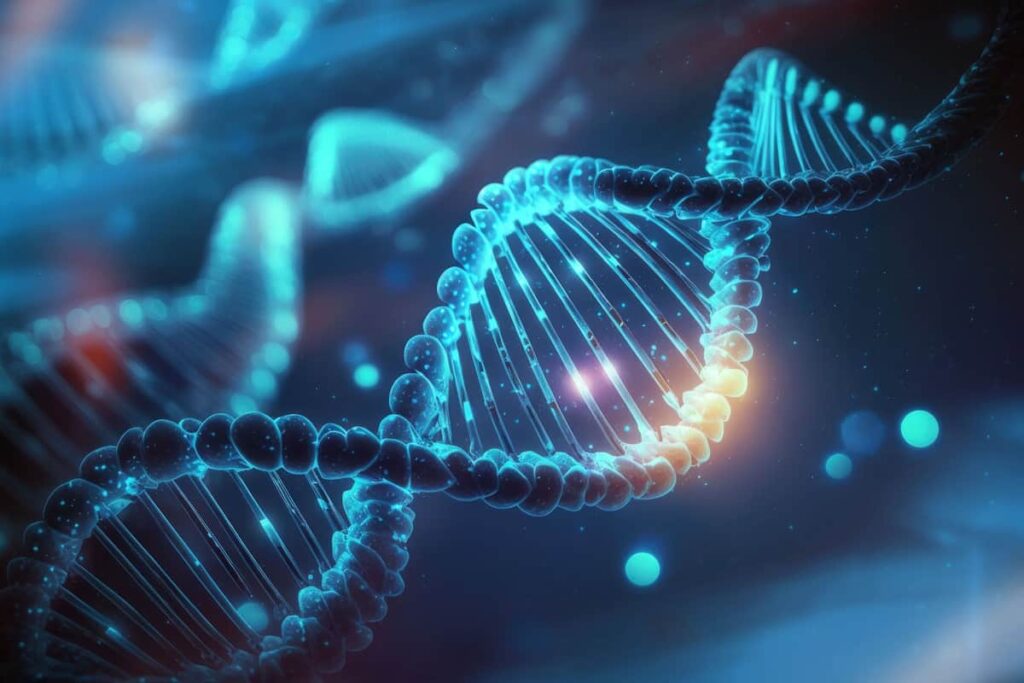What is Synthetic Biology?
Table of contents

Chances are you are reading this article because you’ve heard the phrase “synthetic biology” and want to know what it means. While the use of this phrase is relatively new, awareness is slowly growing according to Google Trends with widespread use of the term beginning around 2005:
What is Synthetic Biology?
According to Wikipedia, synthetic biology is “the design and construction of biological devices and systems for useful purposes”. A 2008 report on synthetic biology from the University of Nottingham breaks this science down into four main areas:
- To produce minimal living genomes
- To design interchangeable parts that can be assembled into pathways to create novel components
- To construct entirely artificial cells
- To create synthetic biomolecules.
Wikipedia makes the following statement about what differentiates “synthetic biology” from “genetic engineering”:
What separates Synthetic biology from Genetic engineering is that rather than altering an already existent DNA strand, synthetic biology puts these “blocks” together from scratch to build an entirely new strand of DNA which is then placed into an empty living cell. These new cells can be “built” to perform a number of functions that could greatly benefit humanity. These operations do not exist in nature.
Synthetic biology has only recently been feasible as a result of the rapidly declining price and concurrent accelerating speed of DNA sequencing.
What are the applications?
According to a 2012 essay on WSJ titled “Repelling Viruses, Reviving Mammoths“, synthetic biology just might revolutionize life as we know it. However, this is not just an aspiration as it is now routinely used to genetically reprogram microbes to make biofuels, vaccines, plastics, and antibiotics. Microbes have also been developed that can destroy cancer cells, detect arsenic levels in drinking water and store digital data in DNA, turning bacteria into the biological equivalent of a flash drive. In August 2012, George Church encoded a 5.27-megabit book using DNA microchips and read the book by using next-generation DNA sequencing. Some additional application examples are as follows taken from a 2011 article published by the Biotechnology Industry Organization titled “Current uses of Synthetic Biology“:
- DSM, a company in the Netherlands, utilized synthetic biology to improve the process of producing Cephalexin, a synthetic antibiotic. The new 2-step enzymatic process replaced a 13-step chemical process, resulting in significant cost and energy savings.
- LS9 is using synthetic biology to develop microbial cells that can perform a one-step conversion of renewable carbohydrates (sugars) to two diesel alternatives. The LS9 processes are unique in that all of the chemical conversions from carbohydrate to finished fuel are catalyzed in the cell, with the finished product secreted.
- Codexis and Merck collaborated to develop a novel enzyme that never existed before and then improved this enzyme’s function greater than 25,000-fold in order to develop a more efficient manufacturing route for one of Merk’s diabetes drugs.
- George Church’s startup, Joule, is using engineered microorganisms to produce ethanol and diesel directly from sunlight, CO2 and water.
- OPXBIO has partnered with DOW Chemical to develop a microbe that will produce acrylic from corn, sugar cane, or cellulose and potentially displace the 8 billion dollar petroleum-based acrylic market
These are just a few examples of companies that are applied synthetic biology to create disruptive advantages in their respective industries.
Investing Opportunities
In an article published by GenomeWeb in May of 2013 titled “Number of Synthetic Biology Firms Tripled over Last Four Years“, data was provided on the growth in the number of entities involved in synthetic biology as seen below:
| 2013 | 4-Yr Growth | |
| Synthetic Bio Companies | 192 | 210% |
| University involved in Synthetic Bio | 204 | 61% |
| Research Institutes working in Synthetic Bio | 57 | 104% |
| Policy Centers for Synthetic Bio Issues | 17 | 750% |
According to the same Genome article, the industry breakdown of companies involved in synthetic biology is as follows:
- Medicine: 45
- Specialty Chemicals: 30
- Fuel and Fuel Additives: 25
- Plastics, Polymers, and Rubber: 20-25
Conclusion
While most of these companies are currently privately held, there are publicly traded companies that can provide investors exposure to the exciting promises of synthetic biology. In a future article, we will discuss a synthetic biology IPO that took place just this month.
Sign up to our newsletter to get more of our great research delivered straight to your inbox!
Nanalyze Weekly includes useful insights written by our team of underpaid MBAs, research on new disruptive technology stocks flying under the radar, and summaries of our recent research. Always 100% free.















